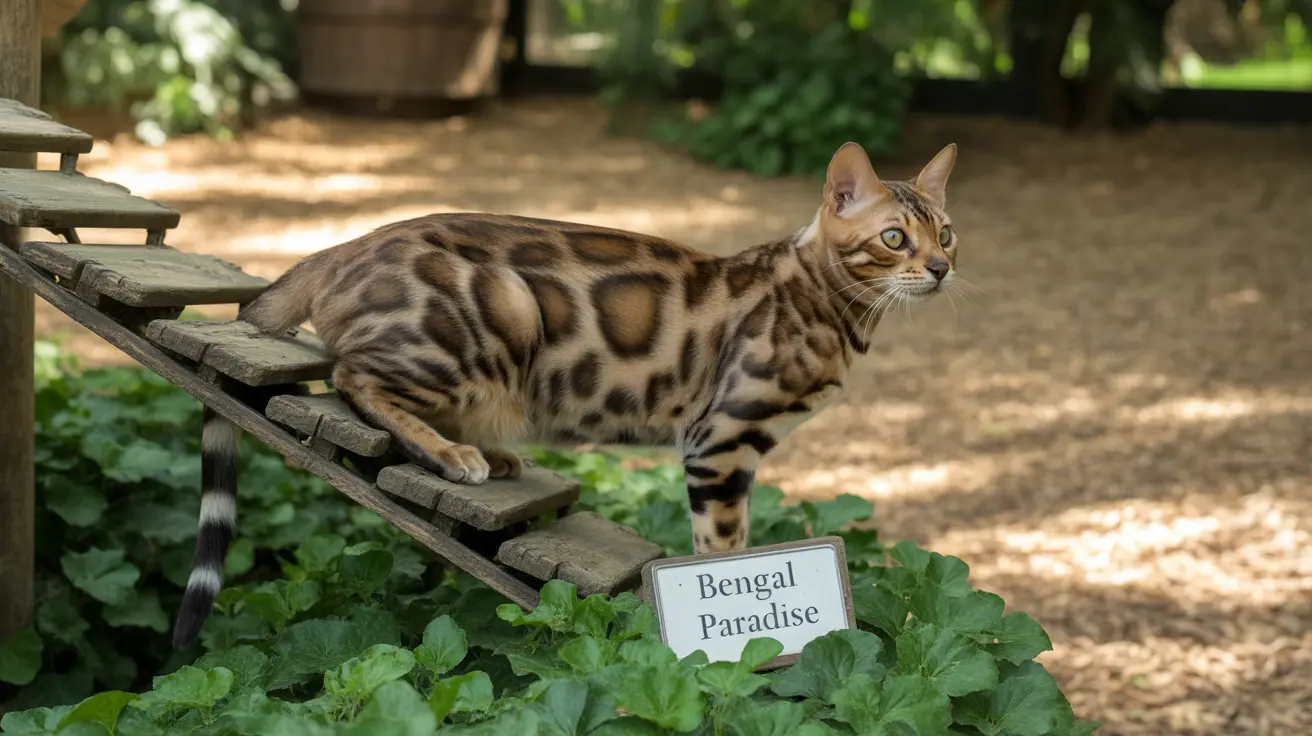The striking appearance of caracals, with their distinctive tufted ears and powerful build, has sparked growing interest in keeping these wild cats as pets. However, before considering a caracal as a companion, it's crucial to understand the complex reality of caring for these magnificent but challenging animals.
This comprehensive guide examines the suitability of caracals as pets, exploring their natural behaviors, care requirements, and the significant responsibilities that come with exotic pet ownership.
Natural Behaviors and Wild Instincts
Caracals are wild animals at heart, regardless of being raised in captivity. Their powerful hunting instincts and territorial nature make them fundamentally different from domestic cats. These instincts cannot be "trained out" of them, as they're deeply ingrained in their DNA.
Unlike domestic cats, which have undergone thousands of years of selective breeding, caracals retain their wild behaviors and can become aggressive or destructive when their natural needs aren't met.
Housing and Space Requirements
Caracals require extensive space and specialized housing that most homes simply cannot provide. A proper enclosure should be at least 500 square feet, with secure fencing over 10 feet high to prevent escape. These facilities must include:
- Multiple climbing structures
- Natural substrate for digging
- Weather-protected shelters
- Environmental enrichment features
- Separate feeding and elimination areas
Legal Considerations and Restrictions
The legal landscape for caracal ownership is complex and restrictive. Most U.S. states prohibit private ownership of these wild cats, while others require expensive permits and licenses. Potential owners must navigate:
- Federal and state wildlife regulations
- Local zoning laws
- Special insurance requirements
- Import/export restrictions
- Annual permit renewals
Health Care and Dietary Needs
Caring for a caracal's health is both challenging and expensive. These animals require specialized veterinary care from exotic animal specialists, which can be difficult to find and costly to maintain. Their diet must consist of whole prey items and carefully balanced raw meat, making feeding both complex and expensive.
Safety and Risk Factors
Caracals pose significant safety risks to their owners, family members, and other pets. Even well-socialized individuals can exhibit unpredictable behavior, potentially resulting in serious injuries. Their powerful build and natural hunting instincts make them capable of causing severe harm, even during play.
The Financial Reality
The financial commitment of caracal ownership is substantial. Beyond the initial purchase price of $5,000-$35,000, annual expenses can exceed $20,000, including:
- Specialized diet and supplements
- Veterinary care
- Facility maintenance
- Insurance costs
- Emergency medical funds
Alternative Options
For those attracted to exotic-looking cats, several domestic alternatives exist that offer similar aesthetic appeal with fewer challenges. Consider:
- Savannah cats
- Bengal cats
- Maine Coons
- Siberian cats
Frequently Asked Questions
Are caracals suitable pets for typical households or apartment living?
No, caracals are not suitable for typical households or apartments. They require extensive outdoor space, specialized enclosures, and cannot be safely confined to regular living spaces due to their size and natural behaviors.
What special care and housing do caracals require if kept as pets?
Caracals need large, secure outdoor enclosures with high fencing, climbing structures, and environmental enrichment. They require specialized veterinary care, a raw meat diet, and extensive daily maintenance that most private owners cannot provide.
What legal restrictions exist on owning a caracal in the U.S. and elsewhere?
Most U.S. states and many countries prohibit private caracal ownership. Where allowed, owners must obtain special permits, licenses, and insurance, making legal ownership both complex and costly.
How do caracals' natural hunting instincts affect their behavior as pets?
Caracals retain strong hunting instincts that can manifest as aggressive or destructive behavior in captivity. These instincts cannot be eliminated through training and may pose serious risks to owners and other pets.
What are the risks and ethical concerns involved in keeping caracals as pets?
Major concerns include physical danger to humans and other animals, the potential contribution to illegal wildlife trade, significant welfare challenges in captivity, and the frequent surrender of caracals to sanctuaries when owners become overwhelmed.
In conclusion, while caracals are undoubtedly beautiful and fascinating animals, they are not suitable as pets for the vast majority of people. The combination of their wild instincts, specialized care requirements, legal restrictions, and significant risks makes them inappropriate for private ownership. Those interested in exotic-looking cats should consider domestic alternatives that can provide companionship without compromising animal welfare or human safety.






